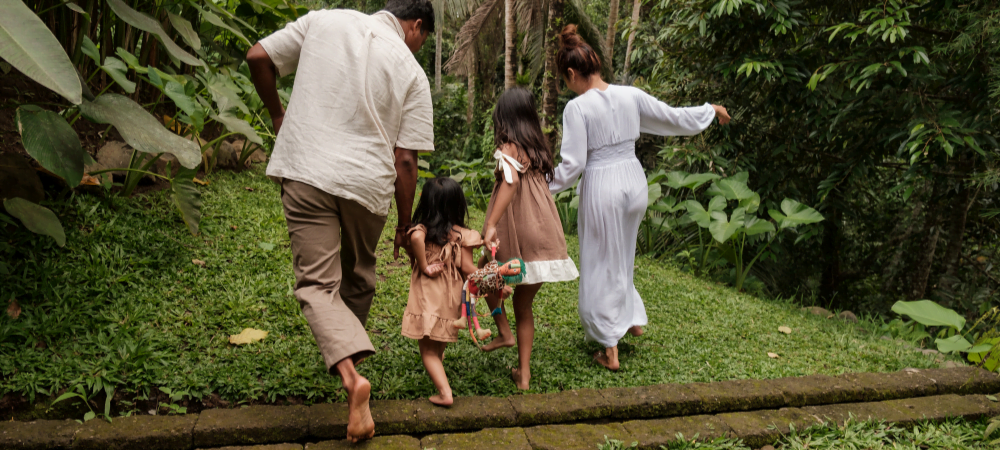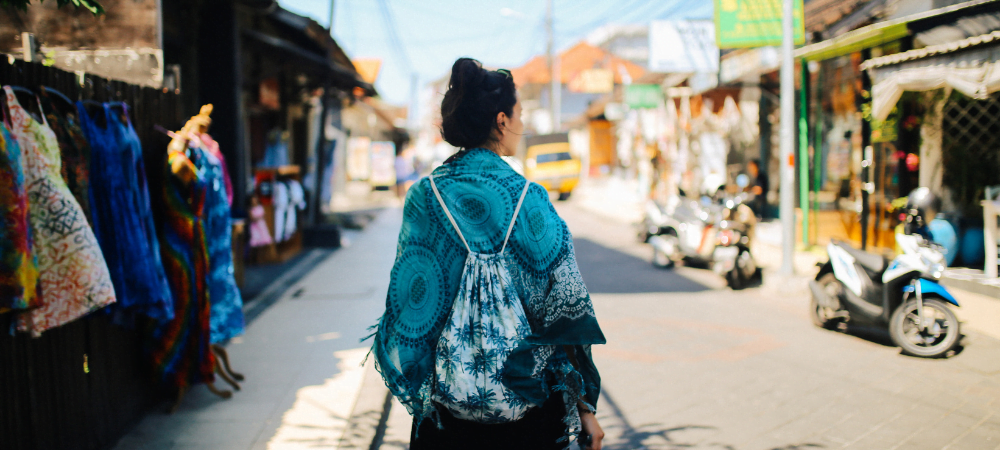Staying Safe in Bali: Essential Tips for a Worry-Free Vacation
Tucked away in the Indonesian archipelago, Bali, often referred to as the “Island of Gods,” beckons travellers from across the globe with its stunning beaches, lush landscapes, vibrant nightlife, and enchanting culture. However, like any popular destination, it also requires tourists to be mindful of safety measures to ensure a worry-free vacation.
Ensuring safety while travelling isn’t just about protecting yourself and your belongings; it’s also about respecting local customs, maintaining health precautions, and acting responsibly to preserve the environment. This article aims to guide you through the essentials of staying safe in Bali, offering practical tips and advice to help you navigate this beautiful island while minimising risks.
Whether you’re an adventurer, a cultural enthusiast, or a relaxed beach-goer, having a grasp on these safety guidelines will not only protect you, but also enhance your overall travel experience. So, buckle up as we take a deep dive into the intricacies of travelling safely in Bali, preparing you to enjoy all the richness this paradise has to offer.
Local Laws and Customs
One of the first steps to staying safe in any foreign country is understanding and respecting its local laws and customs. It’s important to note that what may be considered normal in your home country could be frowned upon or even illegal in another. Bali is no exception.
While most laws in Bali are standard and straightforward, there are a few unique ones that tourists should be aware of. For instance, drug offences in Indonesia are taken extremely seriously and carry severe penalties, including capital punishment. Also, remember that it is illegal to drive without an international driving permit and helmet if you’re on a motorbike. It’s worth getting familiar with these rules to avoid any unexpected legal troubles during your trip.
Balinese people are known for their warm hospitality, and respecting their customs is a way to reciprocate their kindness. Dress modestly, especially when visiting temples. Always use your right hand for giving and receiving, as the left hand is considered impure. During religious ceremonies, do not walk in front of people praying. And if you come across a ‘Canang sari’ (a small offering made daily by Balinese Hindus) on the street, do not step on or disturb it.
Health Precautions
While Bali’s exotic cuisines and lush landscapes are part of its charm, they can also pose some health risks if you’re not careful. Here’s how to ensure your trip is memorable for the right reasons and not marred by health issues.
Vaccinations
Prior to your travel, consult your doctor or a travel health clinic about recommended vaccinations for Bali. Common recommendations include Hepatitis A and B, Typhoid, and Tetanus. Rabies vaccination could also be considered if you’re planning to spend a lot of time outdoors or in rural areas.
Food and Water Safety
Street food is a huge part of Bali’s charm. However, to avoid “Bali Belly” (traveller’s diarrhea), stick to places that are popular and clean. Ensure the food is freshly cooked and served hot. Avoid raw or undercooked meat and seafood, and salads that may have been washed in tap water. Speaking of water, it’s recommended to drink only bottled water and avoid ice that may have been made from tap water.
Sun and Heat
Bali’s tropical climate can lead to sunburn, heatstroke, and dehydration. Wear a hat, sunglasses, and use a high SPF sunscreen. Stay hydrated, but remember to only drink bottled water.
Insects and Animals
Insect-borne diseases like Dengue Fever and Malaria can be a risk, especially in the rainy season. Use an effective insect repellent, and consider taking antimalarial medication if advised by your doctor. Be cautious around animals, especially monkeys at tourist sites, as they can be unpredictable and may bite.
Traveller’s Insurance
This could be a lifesaver in case you need medical help. Make sure it covers any activities you plan on doing, such as diving or riding scooters.
Transportation Safety
Exploring Bali’s stunning landscapes often requires hopping from one place to another, and understanding the local transport scene is crucial for a safe journey.
Public Transport and Taxis
When it comes to public transport, Bali offers a range of options including taxis, bemos (mini-buses), and ojeks (motorbike taxis). Use only reputable taxi companies like Blue Bird, which use meters to avoid getting overcharged. For shorter distances, you can consider an ojek, but make sure to agree on the price before your ride.
Renting Vehicles
Many tourists opt for renting motorbikes or cars to explore Bali. If you choose this, ensure you have an International Driving Permit, as driving without one can lead to hefty fines. Always wear a helmet when riding a motorbike and seat belts while in a car. Be aware that traffic in Bali can be chaotic and driving standards may be different from what you’re used to.
Road Safety
Be extra cautious on the roads. Always follow traffic rules, keep to the speed limits, and be alert for unexpected manoeuvres from other drivers or pedestrians. If you’re not comfortable driving in Bali, consider hiring a local driver who is familiar with the road conditions and traffic rules.
Boat Safety
If you’re visiting Bali’s neighbouring islands, be sure to use a reputable boat operator. Check safety equipment on board, and don’t board if it appears overloaded or in poor condition.
Personal Safety
Bali is generally a safe place for tourists, but like any other destination, it has its share of petty crime. Here are some ways you can ensure personal safety and safeguard your belongings.
Always keep an eye on your personal items, especially in crowded places like markets, beaches, or nightclubs where pickpockets might be active. Don’t leave your belongings unattended. Use hotel safes for your passport, extra cash, and valuables when you’re out exploring.
Bali is safe to walk around, even at night, but it’s always wise to stay alert and aware of your surroundings. Stick to well-lit, busy streets, and try not to walk alone late at night. If you’re feeling unsafe, trust your instincts and remove yourself from the situation.
Tourists can sometimes be targeted for scams. Common ones in Bali include the overpriced taxi fare, the fake entry ticket, or the unauthorised money changer. Do some research in advance, use reputable services, and always count your money.
Bali has vibrant nightlife, and while it’s fine to enjoy this, it’s important to drink responsibly. Watch your drinks being made, and avoid buying alcohol from street vendors, as it might be ‘arak’, a local moonshine that can contain harmful methanol.
Bali’s beaches are beautiful but can have strong currents. Always swim in designated swimming areas, pay attention to flags and signs, and avoid swimming alone, especially at night.
Outdoor and Adventure Activity Safety
Bali is a paradise for outdoor and adventure enthusiasts, boasting a wide range of activities from surfing to trekking. Here’s how you can ensure your adventures are safe as well as thrilling.
Bali’s beaches are famed for surfing, diving, and other water sports. If you’re participating in these, always use reputable operators who prioritise safety and have the necessary permits. Check that the equipment is in good condition and don’t shy away from asking about their safety protocols.
If you’re planning to trek Bali’s scenic trails or climb Mount Batur, consider hiring a local guide. They can help you navigate, ensure you’re safe, and enrich your experience with their local knowledge. Also, make sure to carry essentials like water, snacks, sunscreen, and wear sturdy footwear.
Be respectful and cautious around wildlife. In places like the Sacred Monkey Forest, maintain a safe distance from the animals and avoid direct contact. Feeding or teasing animals is not advised.
Biking is a great way to explore Bali’s picturesque countryside. Wear a helmet, stick to designated trails, and if you’re part of a tour, follow the leader’s instructions.
When visiting Bali’s stunning waterfalls and hot springs, be cautious of slippery rocks. Follow any posted safety instructions and take care while swimming.
Emergency Contacts and Resources
In case of an unforeseen emergency, it’s crucial to be prepared and have the necessary contacts at hand. Here’s a list of resources that could prove helpful.
Emergency Contact Numbers
Keep a list of important contact numbers. Some of the primary ones include – Main Emergency Number: 112, Police: 110, Ambulance & Rescue: 118, Fire Department: 113.
Medical Facilities
Bali has several reliable hospitals and clinics for emergencies. Some of them include BIMC Hospital (Kuta & Nusa Dua), Sanglah General Hospital (Denpasar), and Siloam Hospital (Kuta). It’s advisable to check the location of the nearest medical facility to where you’ll be staying.
Local Embassies/Consulates
It’s also a good idea to have the contact details of your country’s embassy or consulate in Indonesia. They can provide assistance in case of serious emergencies, such as lost passports or legal issues.
Travel Insurance Contacts
Make sure you have the contact details and policy number for your travel insurance readily available. They can guide you on what to do in case of various emergencies and can often provide support when it’s needed.
COVID-19 Related Precautions
The ongoing COVID-19 pandemic has brought about new challenges for travel, and Bali is no exception. Here’s what you should know to stay safe and healthy during your trip.
Current COVID-19 Situation and Travel Advisories
Before travelling, familiarise yourself with the current COVID-19 situation in Bali and any related travel advisories issued by your home country or international health organisations. Information can be obtained from official health department websites, the WHO (World Health Organization), or travel advisories from your home country’s foreign affairs department.
Pre-travel Requirements
Depending on the evolving situation, you may need a negative COVID-19 test before departure, proof of vaccination, or both. Keep an eye on the latest requirements and plan your tests or vaccination schedules accordingly.
Safety Protocols in Bali
Respect all safety protocols implemented in Bali. This might include wearing masks in public places, maintaining social distancing, and avoiding crowded places. Compliance is not only a legal requirement but also a courtesy to local communities.
Staying Healthy during the Trip
Maintain good personal hygiene by washing hands regularly, using hand sanitizers, and refraining from touching your face. Ensure your accommodation is clean and follows safety protocols. If you feel unwell or display COVID-19 symptoms, seek medical help immediately.
Plan for Unexpected Changes
Given the unpredictability of the situation, be prepared for sudden changes in plans. These could include sudden lockdowns, changes in flight schedules, or new travel restrictions. Always have a plan B and keep your travel itinerary flexible.
While the COVID-19 pandemic has added an extra layer of complexity to travel, it is still possible to have a safe and enjoyable trip by being informed, prepared, and respectful of local guidelines. After all, taking care of yourself and others is a part of responsible tourism.
Environmental Responsibility
As a tourist in Bali, you have a part to play in preserving the island’s natural beauty. Sustainable and responsible tourism is an essential aspect of travel safety, contributing to the longevity of the places we love to visit. Here’s how you can play your part:
Plastic pollution is a significant issue in Bali. Where possible, try to minimise your use of single-use plastics. Carry a reusable water bottle, refuse plastic straws and bags, and consider bringing a reusable shopping bag for your purchases.
Whether you’re visiting the Monkey Forest or diving with manta rays, it’s crucial to respect Bali’s wildlife. Avoid touching animals, feeding them, or using flash photography, which can distress them. Never buy souvenirs made from animal products.
When snorkelling or diving, avoid touching or standing on coral, which can cause irreversible damage. Also, choose reef-safe sunscreen to prevent harmful chemicals from damaging marine ecosystems.
When visiting temples or other holy sites, follow the rules to preserve these ancient and sacred spaces. This may include dressing modestly and refraining from touching or climbing on structures.
By buying local products and services, you are directly contributing to Bali’s local economy and encouraging sustainable tourism practices.
As a traveller, you have the power to make a positive impact on your destination. By practising responsible tourism, you’re helping to ensure that Bali remains the paradise it is for future generations to explore and appreciate.
Conclusion
Travelling to Bali can be an experience of a lifetime – a mix of vibrant culture, stunning landscapes, unique wildlife, and warm hospitality. Yet, as with any journey, safety should always be a top priority.
When it comes to safety, the key is to stay informed, prepared, and mindful. Being proactive about your safety will not only protect you, but it also ensures a smoother, more enjoyable travel experience. So equip yourself with these essential tips, respect the local norms, and get ready to dive into the unforgettable world of Bali – a world of rich experiences, amazing adventures, and memories that will last a lifetime.
- Welcome Back To My Villas in Bali - November 17, 2021





